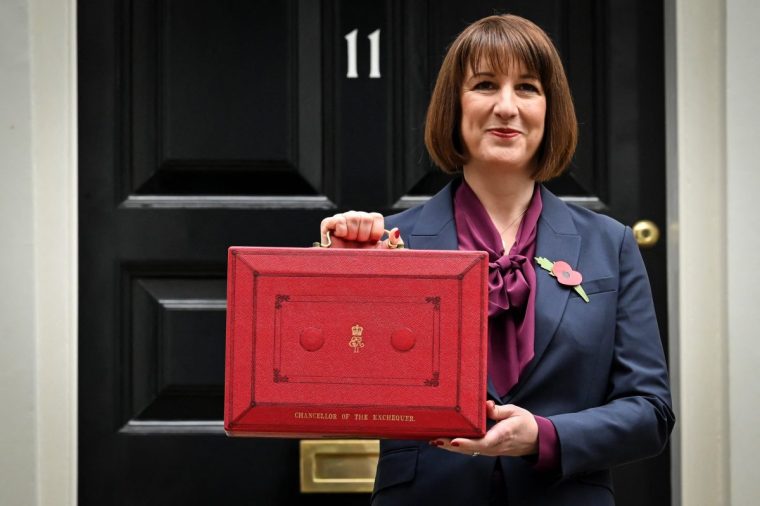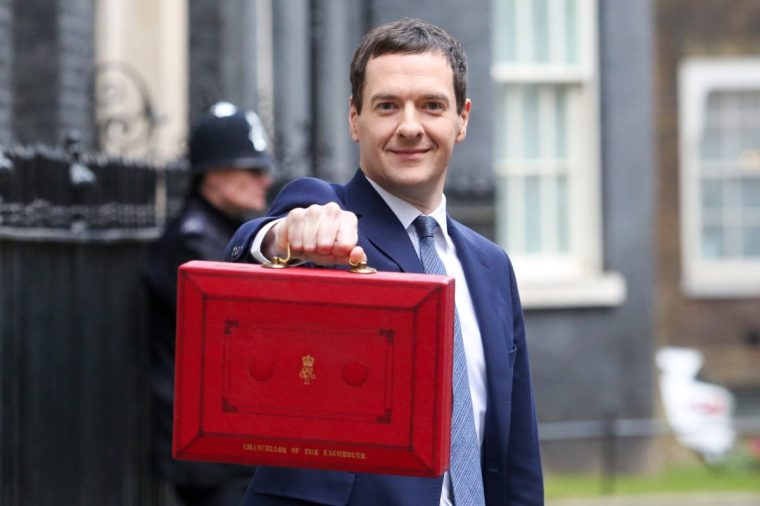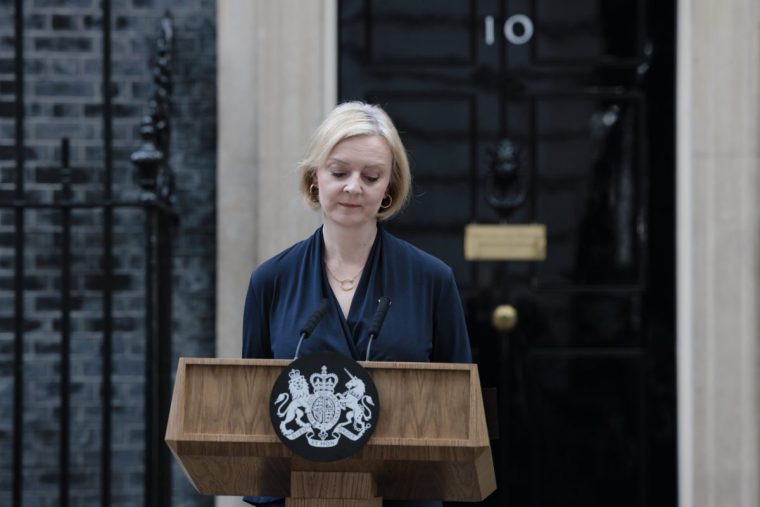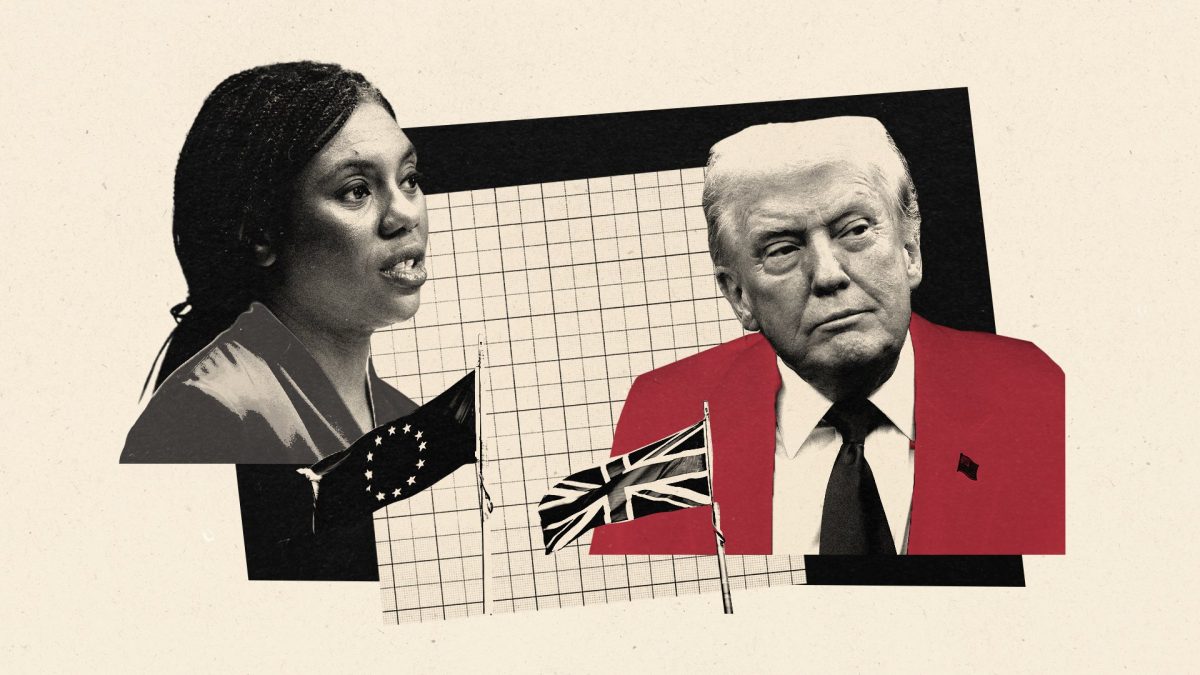Chancellor Rachel Reeves has already started laying the groundwork for who she will blame for the parlous state of Britain’s economy as she prepares a tax-raising Budget on Wednesday.
Austerity under the last Tory government has come up, as has the Brexit deal, former prime minister Liz Truss’s mini-Budget and a world economy upset by Donald Trump’s tariffs.
But according to many leading economists, it is Reeves herself who is to blame for her own Budget woes because she did not do enough to protect herself from the impact of any of these.
New FeatureIn ShortQuick Stories. Same trusted journalism.
Reeves has pointed the finger at decisions made by the previous Conservative government, in particular the policy of austerity and the vote to leave the EU, claiming that they have damaged economic growth by more than previously expected.
She has also complained about the effects of global economic volatility, stoked partly by Trump’s tariffs – and about the lingering effects of Truss’s 2022 “mini Budget” which sent Britain’s borrowing costs soaring.
Reeves ‘must explain what has changed since last year’
 This will be Reeves’s second Budget since Labour won power last year (Photo: Justin Tallis/AFP)
This will be Reeves’s second Budget since Labour won power last year (Photo: Justin Tallis/AFP)
Multiple top economists told The i Paper that the Chancellor was right to identify all those factors as reasons for the UK’s weak growth, which makes the public finances harder to add up.
But they added that the impact of austerity, Brexit and Truss’s time in power have been known for many years – while even Trump’s arrival did not come out of the blue.
Andrew Goodwin of Oxford Economics said: “Three of those factors are historic factors, only one of them has emerged since the last Budget so she has to explain what has changed since the ‘take out the trash’ Budget.”
Stephen Millard of the National Institute of Economic and Social Research added: “All of these things that she talks about have not helped the UK economy, but whether it is fair to blame them for the problems at this Budget – I’m not sure.”
At last year’s Budget and the Spring Statement of this year, Reeves left herself “headroom” – the buffer she has against breaching her maximum borrowing rules – of just £9.9bn, much lower than the historical average. Experts said that if she had built in more headroom, she would have reduced the risk of having to raise taxes again in the face of worsening forecasts from the Office for Budget Responsibility (OBR).
Former Treasury adviser Tim Leunig said: “She had this bullish Budget that has come back to bite her.” And Ruth Gregory of Oxford Economics added: “Had the Chancellor left the £28bn average that previous chancellors had against their respective fiscal rules between 2010 and March 2024, there would have been a good chance she would still be meeting her fiscal mandate with margin to spare.”
The Treasury did not respond to a request for comment.
Austerity and low investment
 Former chancellor George Osborne before the 2016 Budget. His austerity measures have been blamed by Reeves (Photo: Chris Ratcliffe/Bloomberg/Getty)
Former chancellor George Osborne before the 2016 Budget. His austerity measures have been blamed by Reeves (Photo: Chris Ratcliffe/Bloomberg/Getty)
Reeves has said publicly that she expects the OBR to downgrade its expectations for future productivity growth – putting a hole of as much as £20bn in the public finances – partly as a result of the Tories’ policy of austerity, which saw Government spending curbed for years in a bid to reduce the deficit.
She said in a speech last month: “The OBR, I think, are going to be pretty frank about this – that things like austerity, the cuts to capital spending and Brexit have had a bigger impact on our economy than was even projected back then.”
Many economists agree, pointing in particular to the decision to reduce investment in long-term infrastructure projects during the 2010s when borrowing costs were at historic lows.
“The Government has received a challenging economic and fiscal inheritance,” Gregory said. “Weak supply (mostly due to slower productivity growth) has continued to restrain activity.”
But the OBR’s downgrade has been expected for several years, as the official body was much more optimistic than other forecasters. “It is not surprising that they decided to revise their forecasts of growth down,” Millard said. “The Chancellor could and should have left herself much more headroom against her fiscal rule, given that she knew the OBR was a bit optimistic.”
Brexit blows
Speaking at the International Monetary Fund in October, Reeves said: “The UK’s productivity challenge has been compounded by the way in which the UK left the European Union.”
Leaving the EU has created trade frictions with our largest trading partner, with a knock-on effect on growth estimated by the OBR at 4 per cent of GDP – a figure only marginally offset by recent trade deals with Brussels, Washington and Delhi.
But there have been no new developments since Labour took power last year, which would worsen the economic effects of Brexit. Leunig said: “We have known Brexit was bad news since economists said before the referendum that Brexit would be bad news!”
Millard added: “Brexit itself, the uncertainty that was created after the vote, that led to a decline in investment. We had that even before Brexit itself actually happened and firms had to deal with higher trading costs.”
The Truss effect
 Truss’s mini-budget saw the sterling fall to its lowest-ever level against the dollar. (Photo: Rob Pinney/Getty)
Truss’s mini-budget saw the sterling fall to its lowest-ever level against the dollar. (Photo: Rob Pinney/Getty)
The Chancellor often refers to the chaotic period in which Truss governed Britain as a cause of ongoing economic troubles – for example, in September, she told the House of Commons: “The best way to make sure that we continue to have confidence in the gilt markets is to keep the Tories and Truss as far away from running the economy as possible.”
During Truss’s premiership, the UK saw its borrowing costs spike sharply, and since then, it has been persistently more expensive for this country to service its debts than for other comparable economies.
Millard said: “The reason the Chancellor has to abide by these fiscal rules is that if she didn’t, it would make markets jumpy. And the reason the markets are pretty jumpy is Truss – she said that we were not going to have fiscal responsibility, we would just have tax cuts and hope that would create growth.”
But the short-lived Downing Street tenure of the former prime minister cannot be blamed for the on-off panic in debt markets that has taken hold this year.
Borrowing costs have risen worldwide as a result of investors’ worries about the overall levels of government borrowing globally, with UK-specific spikes at times of political uncertainty, including the Government’s U-turn on raising income taxes earlier this month.
The Trump factor
The one area where economists have more sympathy with Reeves is the need to deal with a world shaken up by the unpredictable policies of Trump.
Her pre-Budget speech from Downing Street on 4 November included a reference to “heightened global uncertainty” creating “long-term challenges” – although she did not risk the anger of the US President by calling him out by name.
The last Budget came a few days before the presidential election, while the Spring Statement was before what Trump called “liberation day”, when he revealed the scale of tariffs he would be imposing on trading partners, including Britain.
Your next read
“The Spring Statement came just before liberation day,” Goodwin said. “It is not on the same level as some of those other factors, such as Brexit, but it is one of those things that makes a difference at the margins. It is a long-run headwind that means we grow less quickly than we would have done.”
But even this should not have been a total surprise, Leunig insisted: “Trump isn’t obviously wackier than he was a year ago. At the last Budget, it was pretty much 50-50 that he was going to be elected. This is a man who describes himself as ‘tariff man’, you don’t have to read all the newspapers to know that he was going to put on tariffs.”

